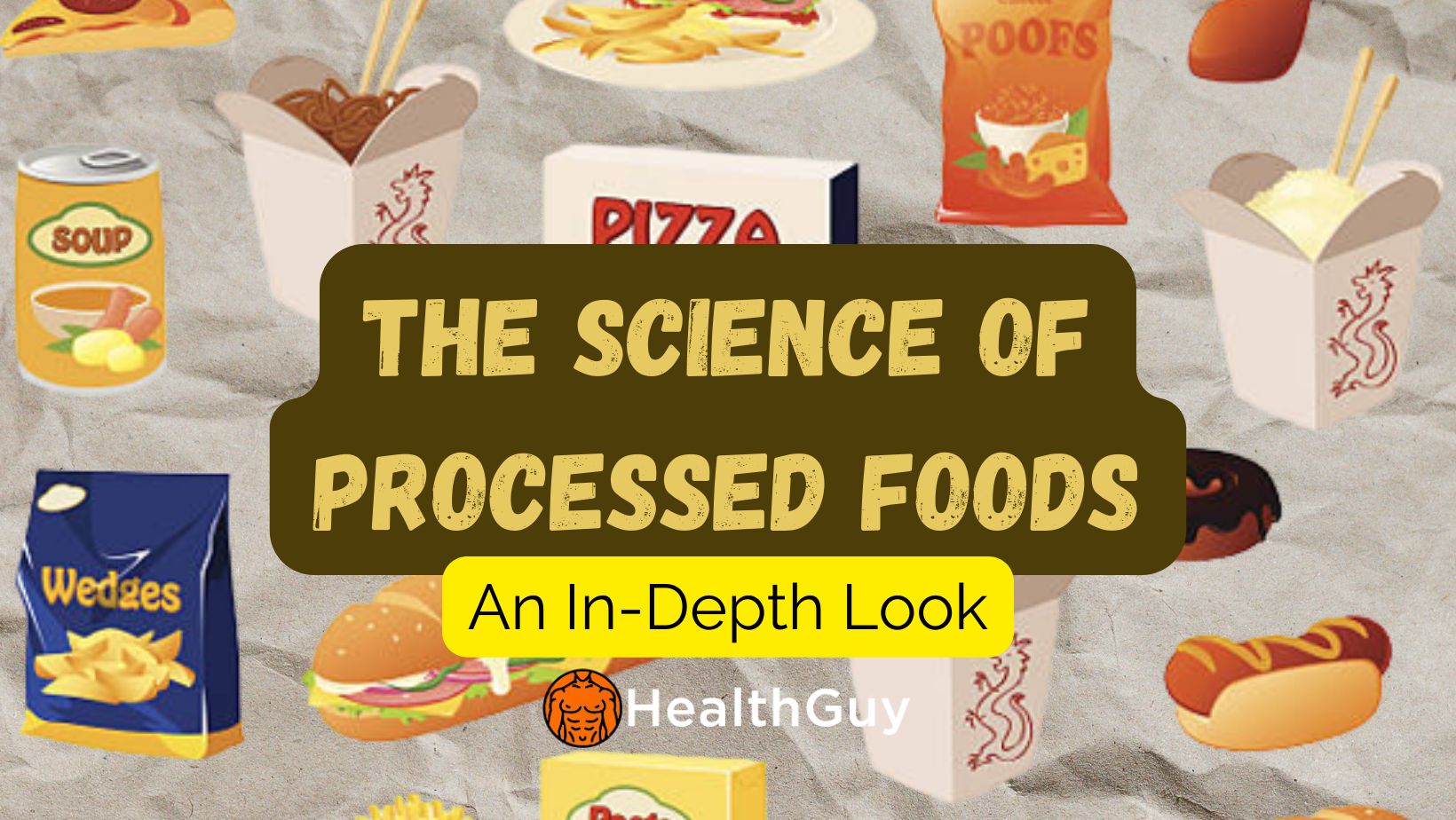
The Science of Processed Foods: An In-Depth Look
Processed foods have become a common staple in many people’s diets today. They are foods that have undergone some form of processing or modification to make them more convenient to consume or increase their shelf life. The term “processed” can refer to any food that has been changed from its natural state in some way, from canned beans to packaged snacks. In this section, we will look at what processed foods are, how they are made, and the various types of processed foods available.
What are Processed Foods?
Processed foods are those that have been altered from their natural state. This can include foods that have been cooked, canned, frozen, or packaged. Many processed foods are designed to be convenient, with easy-to-open packaging and quick preparation times. Some processed foods are more heavily modified than others. For example, some processed foods have added sugars, salt, or fats to improve their taste, texture, or appearance. Others have had their nutrient content altered through refining or fortification.
Examples of processed foods include:
- Breakfast cereals
- Packaged snacks, such as chips and crackers
- Canned goods, such as soup and vegetables
- Frozen meals and pizzas
- Deli meats and hot dogs
- Soft drinks and energy drinks
- Baked goods, such as cakes and cookies.
How are Processed Foods Made?
Processed foods can be made using a variety of methods, depending on the type of food and the desired outcome. Some common processing methods include:
- Canning: The food is cooked, sealed in a can, and sterilized to prevent spoilage.
- Freezing: The food is frozen to preserve its freshness and nutritional value.
- Refining: Whole grains are processed to remove the outer layers, resulting in a finer texture but also reducing the nutrient content.
- Fortification: Nutrients are added to food to enhance its nutritional value.
- Additives: Substances are added to a portion of food to enhance its taste, texture, appearance, or shelf life.
How do Processed Foods Affect our Health?
Processed foods can have both positive and negative effects on our health. On the one hand, they can be a convenient and affordable way to get a variety of foods into our diets. They can also be helpful for people with limited access to fresh foods, such as those living in food deserts.
However, many processed foods are also high in added sugars, salt, and unhealthy fats. These ingredients can contribute to a range of health problems, including obesity, diabetes, and heart disease. In addition, some additives and preservatives used in processed foods have been linked to health concerns such as cancer and allergies.
Processed Foods and Cancer
Processed food has been linked to an increased risk of cancer. Processed foods are foods that have undergone some form of processing or modification, including canned, packaged, or frozen foods. They often contain high levels of added sugars, unhealthy fats, and sodium, as well as preservatives, flavourings, and colours.
Studies have shown that a diet high in processed foods is associated with an increased risk of several types of cancer, including colorectal cancer, stomach cancer, and pancreatic cancer. One reason for this is that some of the additives and preservatives used in processed foods have been linked to cancer.
For example, nitrates and nitrites are commonly used as preservatives in processed meats, such as bacon, hot dogs, and sausages. These compounds can form nitrosamines, which are known to be carcinogenic. Additionally, acrylamide, a chemical that can form during the cooking process of some processed foods, has also been linked to cancer.
Furthermore, a diet high in processed foods can lead to obesity, which is a major risk factor for several types of cancer, including breast, colon, and pancreatic cancer.
To reduce the risk of cancer, it is recommended to limit the consumption of processed foods and choose fresh, whole foods instead. This includes fruits, vegetables, whole grains, and lean proteins. When buying processed foods, it is important to read labels carefully and choose options that are lower in added sugars, unhealthy fats, and sodium. Additionally, avoiding processed meats or choosing nitrate-free options can also help reduce the risk of cancer.
What Should we do About Processed Foods?
- While it is not necessary to eliminate processed foods from your diet, it is important to be mindful of the types and amounts of processed foods you consume.
- Try to choose minimally processed foods whenever possible, such as fresh fruits and vegetables, whole grains, and lean proteins.
- When buying processed foods, read the labels carefully and look for options that are lower in added sugars, sodium, and unhealthy fats.
- Processed food and frozen food are different but can overlap in some cases.
- Processed food refers to food that has undergone some form of processing, such as canning, baking, frying, or adding preservatives, additives, or flavorings. Processed food can be found in both the refrigerated and non-refrigerated sections of grocery stores and can include items like canned soup, chips, cookies, deli meats, and breakfast cereal.
- Frozen food, on the other hand, refers to food that has been frozen at some point to preserve it. Frozen food can include items like frozen vegetables, fruits, meats, and ready-to-eat meals.
- While some processed foods are also frozen, not all frozen foods are processed. Frozen fruits and vegetables, for example, are often minimally processed, if at all.
- In terms of nutrition, processed foods can sometimes be higher in added sugars, salt, and unhealthy fats. However, frozen foods can be a healthy and convenient option, particularly when it comes to fruits and vegetables, which can be frozen at peak freshness and retain much of their nutritional value.
- Ultimately, both processed and frozen foods can have a place in a balanced diet. It’s important to read labels and choose options that are low in added sugars, sodium, and unhealthy fats, and to incorporate fresh foods whenever possible.
